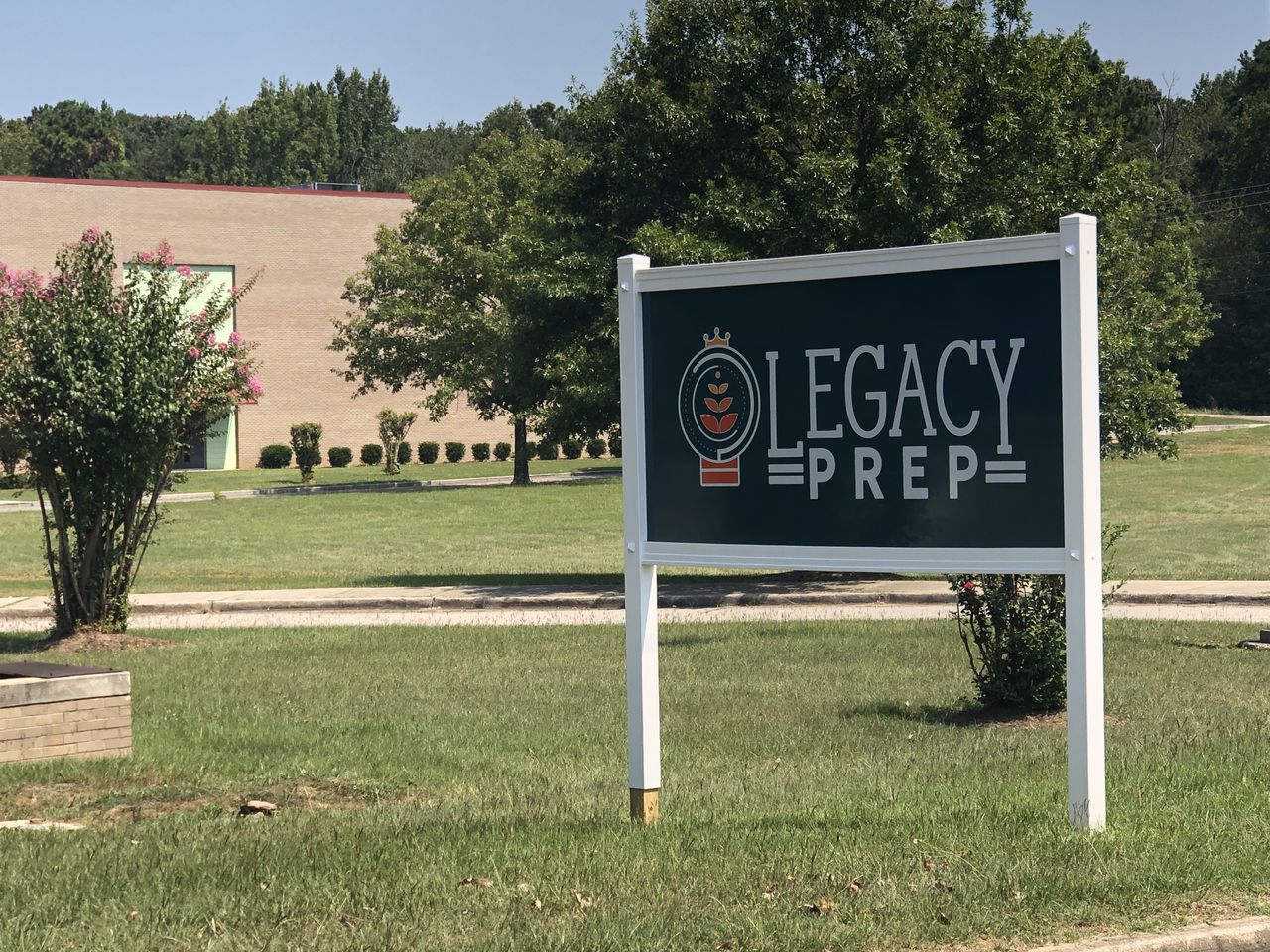Alabama charter school needed $250,000 to keep running, state says
Want more state education news? Sign up for The Alabama Education Lab’s free, weekly newsletter, Ed Chat.
Prior to an audit that discovered Birmingham charter school Legacy Prep misspent as much as $311,000 of funds over a two-year period, state education officials were at the table with school officials because of money trouble.
Alabama State Superintendent Eric Mackey told AL.com that school officials contacted him in September 2021 asking for help meeting payroll. Without the state’s financial help, they said, they might have had to lay off teachers at the kindergarten through fourth grade school.
According to Mackey, the state advanced the school $250,000 in state funding in November 2021. The school has continued operations and added a grade level this school year. The school’s first CEO and founder, Jonta Morris, resigned in 2021. She was initially held responsible for the misspent money and lack of documentation, but was eventually cleared by the state Department of Examiners of Public Accounts.
The kind of financial trouble Legacy Prep was having was enough to consider revoking their charter, Mackey said, but he didn’t think that would be the right thing to do for students.
“We felt like the best outcome for children was to try to help the school keep going,” he said.
Mackey said he and the state department’s then-chief financial officer Andy Craig met with Legacy Prep’s board chair Ruqayyah Abdullah and newly-named CFO Willie Davis in October 2021 to discuss the details.
“We came to the conclusion together that the best thing would be for us to just advance them the money and they could pay back out of the deducts from the Foundation Program,” Mackey said. “But one of the stipulations was that they had to submit to an audit from the examiners.”
Mackey said school officials willingly agreed to the audit.
“The sentiment was they wanted to know exactly what had gone on as to why they had gotten in such financial shape.”
Mackey said when school districts find themselves in this kind of financial trouble, most are able to obtain a line of credit pledging local tax revenue to pay back the loan, but charter schools don’t receive any local tax revenue. Most school districts also don’t keep enough funds on hand to cover expenses or payroll for an extended period of time.
AL.com was unable to reach Legacy Prep’s board chair to confirm details of the meeting.
The audit, which started soon after the meeting, was necessary, Mackey said, because routine compliance monitoring–where school officials provide evidence they’re following rules and regulations–surfaced a number of issues for Legacy Prep at the start of the 2021-22 school year.
The charter school had problems across the board in the area of financial record-keeping and procedures, according to documents AL.com reviewed.
The findings were serious enough to warrant a Dec. 29, 2021, letter to the school’s CFO from the Alabama Public Charter School Commission’s then-chairman David Marshall, asking for a written plan to address the compliance monitoring findings within 30 days.
Legacy Prep officials responded on Jan. 26, stating all findings were corrected by late November and laying out a new budget and a plan for moving forward.
On Jan. 4, 2022, Mackey also wrote a letter to Davis and to Abdullah asking for a revised budget and a written financial plan addressing the findings. A response was quickly received and Mackey said he is confident the issues have been resolved.
School officials made a presentation to the commission at its March 10 virtual meeting, presenting the corrections made and the financial and leadership plan for moving forward.
New Schools for Alabama’s Tyler Barnett said the way the state funds charter schools in their first few years puts them at risk for financial problems. And financial problems are the reason most charter schools fail in the first two years, he said.
Barnett, whose organization provides financial support for start-up charters and operational support for charter schools, said despite the obstacles charter schools face, particularly in their first few years, what happened at Legacy Prep appears to be an isolated case.
“The reality is charter schools are in most cases getting upwards of 30% less revenue than a traditional district,” Barnett said. “And cash flow is inherently going to be an issue in those first couple of years.”
Adequate staffing and systems cost money, he added.
“If those things are not in place, then issues like this can arise. Most charter school leaders don’t come into the space with Alabama school finance expertise. They come in as visionaries with a goal for improving education for the kids they plan to serve. And so it’s a significant area of need.”
